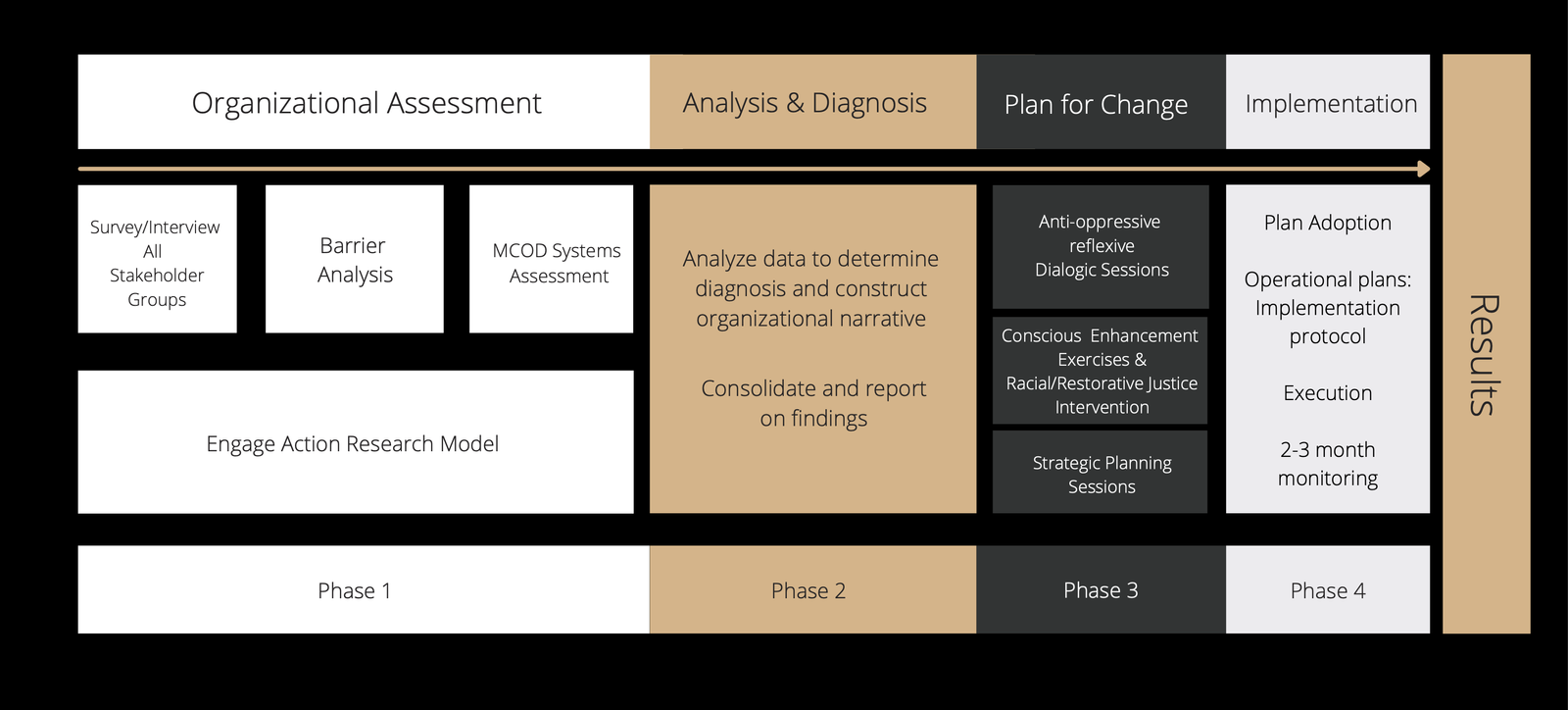Why the MCOD Approach?
Part of developing multicultural capacity is establishing equitable practices. Discriminatory policies and practices result in inequities. Institutionalized, personally mediated, and internalized racism are all factors that contribute to disparities at organizations of all kinds.

Multicultural Organization Development Approach (MCOD)

MCOD developed in response to limitations of traditional organizational development models and diversity initiatives, which organizational change practitioners saw as inadequate to address race, gender, class, and other aspects of discrimination and oppression.
In the 1970s, many workplaces became more diverse in response to social movements, civil rights laws, and demographic changes. However, these organizations remained essentially monocultural. Organizational cultures did not change to accommodate increased diversity in staff.
Prejudice, discrimination, and institutionalized oppression persisted. In addition to violating civil rights laws and causing pain and suffering, this situation undermined the potential of individuals and organizations.
During the 1970s it became apparent that diversity models focusing on individual consciousness-raising and training did not result in meaningful change because organizational systems reinforced the status quo. As a result, strategies were broadened to encompass entire organizational systems.
In a multicultural organization, multicultural principles are integral to all aspects of the organization, starting from its mission, vision, and values. From this foundation, organizational participants strive to integrate multicultural principles in all aspects of their work. Rather than a sidebar, add-on, or separate initiative, the values and practices of MCOD become part of the organizational norms.
Our novel approach to facilitating radical and transformational change outcomes
for both enhanced systems performance and DEI outcomes.


